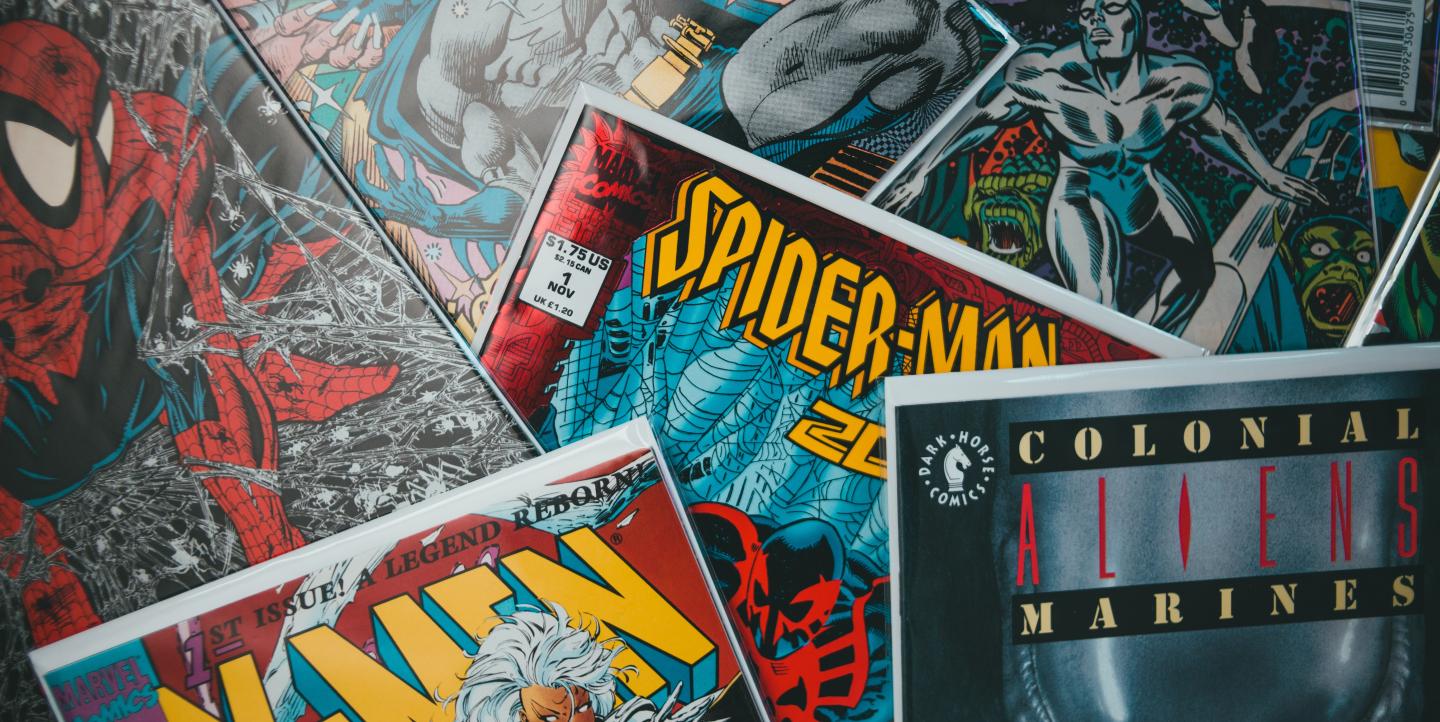Media outlets traditionally use comics only to complement their existing content. Jurnaliskomik, an media initiative in Indonesia, is turning this on its head, leveraging comics as its primary way to report.
"Comics are usually only used as a complement, and even then they only fill the end or a few pages in the newspaper," said Jurnaliskomik’s founder, Hasbi Ilman Hakim.
Jurnaliskomik was founded in 2016, as the comic industry in Indonesia was experiencing a revival after being supplanted by Japanese, American and European comics in the 1980s. There was no outlet in Indonesia, however, that used comics as a primary means of reporting.
A skilled artist in love with the world of comics since he was a teenager, Hakim began early in his career to produce comics inspired by real stories happening around him. These were distributed in the form of zines to campuses in Bandung City, West Java. "It was only in 2018 that we started uploading our works on our website and social media channels," he said.
The audience's response to the comics was positive, Hakim found. Drawn to the attractive images with striking color choices and a human-centered storylines, readers — primarily tech-savvy young people — spread Jurnaliskomik’s content on websites, Instagram and Twitter.
"Essentially, we want to create works that have an impact on the public, can be consumed by various groups and presented in a creative way," said Hakim.
Reporting human-centered stories
Comics offer a compelling way for journalists to engage readers, helping them better understand complex issues and events, Hakim believes. Long-form stories, for instance, can be summarized using visuals and short texts without taking away from the message the writer is trying to convey.
Jurnaliskomik often spotlights the stories of marginalized people and communities. One comic, "Guarding the Morgue," highlights the role of healthcare workers during the worsening COVID-19 epidemic. Another report, titled "Compassion in the Wilderness of Jakarta," tells the story of a woman's efforts to save a child who is a victim of domestic violence. In "A New Life on the Island of Prisons," the comic portrays the life of a family in Nusakambangan, an island where the highest security prison complex in Indonesia is located.
The outlet's reporting spotlights issues of humanity, history, and aspects of society that are either underreported in the news or have specific meaning to Indonesian people, explained Hakim. He hopes the work of Jurnaliskomik will not just entertain, but evoke emotions and improve readers' understanding of these issues and events. "Behind the numbers and data, there is a story there. The humanist side of human life is what we want to highlight from our works," he said.
Adhering to the journalistic code of ethics
A small team of five, including a comic artist, graphic designer, an editor and two writers, runs Jurnaliskomik today. The outlet often collaborates with other journalists and newsrooms. "The collaboration is also an effort to introduce comics journalism to a wider audience," said Hakim.
Like other journalistic endeavors, comics reporting should adhere to ethical reporting principles. It can take time, too, to generate comics based on real events, due to the in-depth research required. "What we draw in the comics should be as close as possible to the real situation. For example, the appearance of the characters and other details," he said.
To ensure credibility and accuracy in their work, the team verifies all facts and data they use, as well as any photos or archives they may incorporate. "We keep our work away from personal opinion," said Hakim.
Challenges and opportunities
Jurnaliskomik represents a new genre that not many people are familiar with, said Ravi Ahmad Fauzan, the outlet's marketing officer. Comics are also often viewed as content intended primarily for children, only focusing on fiction and humor. "That's the understanding that we want to change. Comics are a way of conveying [information] like other media genres, such as text and video," said Fauzan.
There exists significant opportunity for Jurnaliskomik to make its mark in Indonesia, however. Few other media in the country practice comics journalism, after all. "Feedback from readers of our content so far is good, so we are confident enough to move forward," he said.
After halting operations in 2021 because of COVID-19 and uncertain funding sources, Jurnaliskomik has resumed publishing this year with virus outbreaks now under control. The outlet's team has ambitious plans looking ahead, said Fauzan. "In the future, we want to make offline projects whether it's in the form of exhibitions, making printed comics and merchandise," he said.
With this in mind, Jurnaliskomik is in search of a sustainable business model — one which allows it to maintain its independence from sponsors and investors. "Although we haven't really benefited financially, there is a certain satisfaction when our work is appreciated and useful for many people," said Hakim.
Photo by Erik Mclean on Unsplash.


